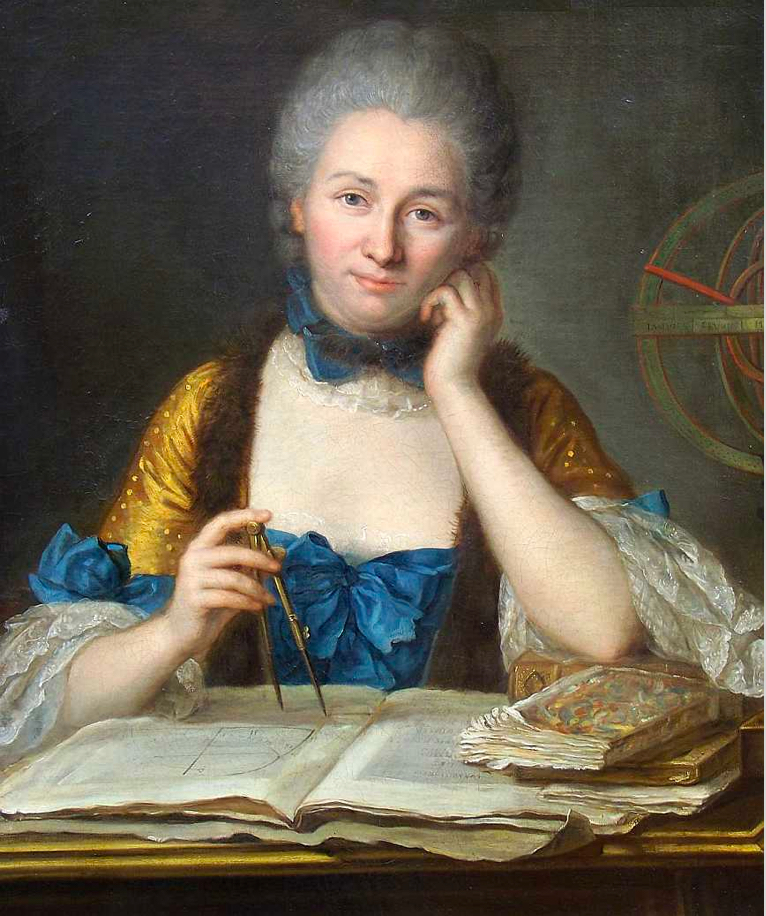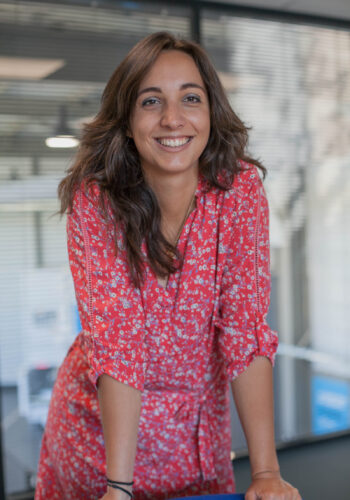Pourquoi la tech ?
Je pense par curiosité globale des choses qui nous entourent. Je ne suis pas sure qu’il s’agisse vraiment d’un choix conscient et volontaire. Je me suis toujours trouvée attirée par ce qui pouvait expliquer notre monde – les sciences et puis ce qui pouvait améliorer notre quotidien – la tech.
Votre parcours ?
J’ai fait les classes préparatoires scientifiques et je suis devenue ingénieure. Au tout début de mes études, je n’étais pas sûre de mon projet professionnel. Être ingénieur était pour moi un moyen de m’ouvrir le plus de porte possible et de m’assurer une capacité à faire une multitude de métiers. Au cours de ma formation j’ai fait une année de césure en tant que Présidente de la Confédération Nationale des Junior-entreprises. Par la suite, j’ai commencé dans le conseil interne chez ENGIE. J’ai réalisé que j’avais encore soif d’apprendre mais aussi l’envie d’acquérir de nouvelles aptitudes dans des missions opérationnelles. Du coup j’ai intégré un Graduate Program où j’ai pu prendre 3 postes différents en 3 ans (réponses aux appels d’offres grand projet, fusion acquisition, agence robotique). Je suis ensuite devenue cheffe d’agence intervention chez GRDF.
Votre première expérience professionnelle dans la tech ?
Pour moi il s’agit de mon poste en agence de robotique. J’y ai retrouvé le plaisir de toucher à des objets techniques (les îlots robotisés) en y ajoutant une réelle dimension d’utilité pour l’homme. J’ai aussi compris que la tech n’existe que par les hommes qui la font vivre.
Que faites-vous aujourd’hui et pourquoi ?
Aujourd’hui je suis cheffe d’agence intervention chez GRDF. La mission de mon agence est d’assurer la sécurité du réseau de distribution de gaz, de répondre aux demandes clients et d’assurer les travaux d’extension.
Ma mission est de réunir les conditions pour que les équipes travaillent le plus sereinement et efficacement possible tout en veillant à leur sécurité. En soi, ma mission est de m’occuper des femmes et des hommes qui font de la tech.
Vos atouts pour ce poste ?
Je pense une grande adaptabilité car en agence on ne sait jamais ce qui va se passer dans la journée. C’est ce que je trouve excitant mais parfois challengeant aussi.
Je pense que malgré ce mouvement perpétuel, il faut être capable d’avoir la vision de là où le collectif veut mener l’agence et l’aider à y aller. Pour cela il faut savoir écouter et entendre, se projeter et partager.
Vos défis passés, vos ratés, vos grands moments de solitude ?
J’en ai eu plusieurs, comme tout le monde je crois. Pour ce qui est des ratés, dès le début de mon parcours, je n’ai pas intégré l’école de mes rêves. Sur le moment, mon avenir me semblait compromis mais j’ai ensuite pu trouver d’autres moyen de m’épanouir dans l’associatif notamment.
Sur un autre registre, les premiers mois de mon poste en Graduate Program ont été extrêmement difficile. J’avais une très mauvaise relation avec mon manager qui m’isolait. J’ai commencé à ressentir de l’angoisse à venir travailler. Sur les premiers mois, je me suis enfermée dans une forme de solitude, me disant que j’étais seule responsable de la situation. C’est quand finalement j’ai partagé ma détresse au reste de l’équipe que nous avons collectivement compris ce que nous traversions tous individuellement. La solitude c’est transformé en solidarité et nous avons réussi à faire évoluer la situation. J’ai rapidement repris énormément de plaisir dans mon travail.
Dans tous les défis que j’ai traversés, mon entourage professionnel comme personnel m’a permis de transformer les ratés en opportunités. Je pense qu’il est important de cultiver cet environnement.
Vos meilleurs moments, les succès dont vous êtes fière ?
Récemment la réussite dont je suis la plus fière est celle de mon agence qui, en plus d’avoir rempli ses objectifs quantitatifs, a atteinte des résultats inégalés en termes d’engagement des salariés et de bien-être au travail. C’est une réussite personnelle car, plus que la performance, le bonheur des collaborateurs au travail est un enjeu auquel je tiens énormément. Il est toujours le résultat d’un immense travail collectif et quotidien.
Des personnes qui vous ont aidée/marquée ou au contraire rendu la vie difficile ?
Ma route a été éclairée par beaucoup de mentors. Je pense que j’ai fait le choix de me détourner des personnes qui ne me faisait pas grandir. J’ai aussi eu la chance de croiser des personnes qui avaient à cœur de m’accompagner et qui m’ont permises d’outrepasser mes premières difficultés rencontrées.
Vos envies et défis à venir ?
Principalement aider à développer les énergies de demain, biosourcées et locales.
Et que faites-vous en dehors de votre travail ?
Tellement de choses ! De l’équitation tous les jours, des moments privilégiés avec ma famille et mes amis, du ressourcement personnel. Toutes ces facettes de ma vie sont indispensables et je ne rogne jamais sur aucune d’entre elles. Je pense qu’elles se complètent. C’est cet équilibre qui me permet d’être au meilleur de moi-même. Bien sûr c’est challengeant au quotidien et on ne trouve jamais la parfaite organisation mais je pense que dans ce cas, la rigueur est notre meilleur allié.
Vos héroïnes (héros) de fiction, ou dans l’histoire ?
Simone Veil, une femme au parcours extraordinaire qui a su se battre pour ce qu’il lui importait et pour les autres.
Votre devise favorite ?
On ne tire pas sur une fleur pour la faire pousser. On l’arrose et on la regarde grandir… patiemment (même si j’avoue ne pas être une grande fan de devises).
Un livre à emporter sur une île déserte ?
Cyrano de Bergerac
Un message ou un conseil aux jeunes femmes ?
Allez-y, osez ! Faites ce dont vous avez envie et ce qui vous amuse. Ne vous demandez pas si vous en êtes capable, vous l’êtes ou vous le deviendrez.


